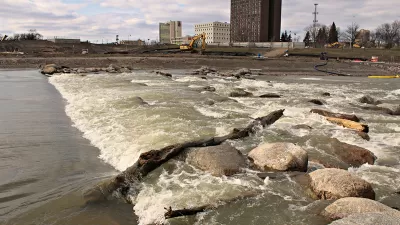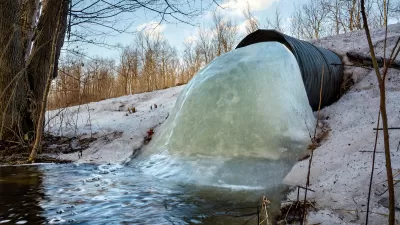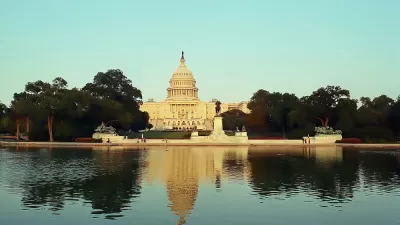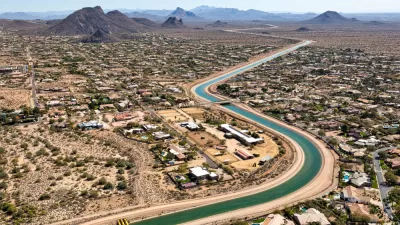Reflecting its reputation as the land of 10,000 lakes, Minnesota's highly developed water management infrastructure can be instructive for states facing frequent floods.

As Lynn E. Broaddus writes for Brookings, "Despite its inland location – seemingly distant from the major storms that dominate national headlines – Minnesota has a variety of institutional frameworks, financial levers, and programmatic tools aimed at accelerating water infrastructure improvements."
Broaddus points to the state's many stormwater utilities and watershed districts, as well as their financial health. "Minnesota contains the most stormwater utilities in the U.S., 197 utilities out of 1,583 utilities nationally. By establishing and supporting these utilities over time, the state has been able to operate from a position of greater technical and financial capacity, generating durable revenues to pay for water upgrades."
Minnesota has also been proactive on the state level, levying a tax to raise about $100 million annually for its Clean Water Fund. "Grants from this fund go toward water assessment, monitoring, and planning, as well as on-the-ground projects like rain gardens, buffer installation, and erosion control."
FULL STORY: How the Land of 10,000 Lakes is planning and paying for cleaner water

Study: Maui’s Plan to Convert Vacation Rentals to Long-Term Housing Could Cause Nearly $1 Billion Economic Loss
The plan would reduce visitor accommodation by 25,% resulting in 1,900 jobs lost.

North Texas Transit Leaders Tout Benefits of TOD for Growing Region
At a summit focused on transit-oriented development, policymakers discussed how North Texas’ expanded light rail system can serve as a tool for economic growth.

Using Old Oil and Gas Wells for Green Energy Storage
Penn State researchers have found that repurposing abandoned oil and gas wells for geothermal-assisted compressed-air energy storage can boost efficiency, reduce environmental risks, and support clean energy and job transitions.

Private Donations Propel Early Restoration of Palisades Playground
Los Angeles has secured over $1.3 million in private funding to restore the Pacific Palisades playground months ahead of schedule, creating a modern, accessible space that supports community healing after recent wildfires.

From Blight to Benefit: Early Results From California’s Equitable Cleanup Program
The Equitable Community Revitalization Grant (ECRG) program is reshaping brownfield redevelopment by prioritizing projects in low-income and environmental justice communities, emphasizing equity, transparency, and community benefits.

Planting Relief: Tackling Las Vegas Heat One Tree at a Time
Nevada Plants, a Las Vegas-based nonprofit, is combating the city’s extreme urban heat by giving away trees to residents in underserved neighborhoods, promoting shade, sustainability, and community health.
Urban Design for Planners 1: Software Tools
This six-course series explores essential urban design concepts using open source software and equips planners with the tools they need to participate fully in the urban design process.
Planning for Universal Design
Learn the tools for implementing Universal Design in planning regulations.
Ascent Environmental
Borough of Carlisle
Institute for Housing and Urban Development Studies (IHS)
City of Grandview
Harvard GSD Executive Education
Toledo-Lucas County Plan Commissions
Salt Lake City
NYU Wagner Graduate School of Public Service





























